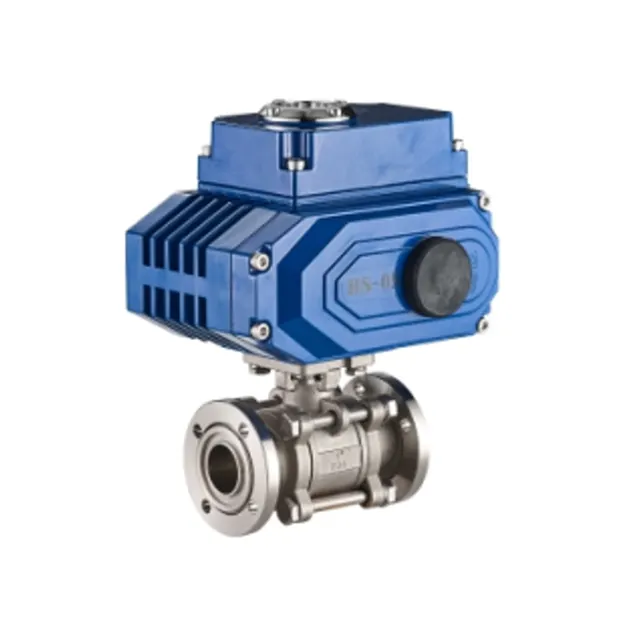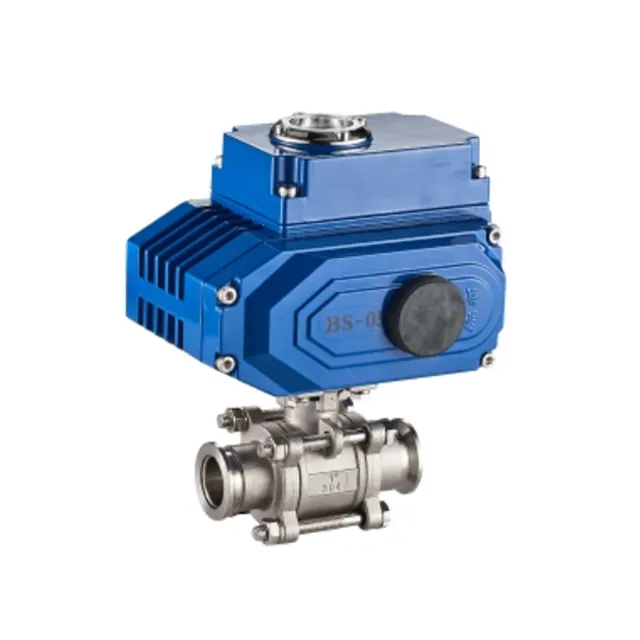Key Factors Behind the Durability and Longevity of Vacuum Valves
Vacuum valves play a critical role in many industrial and scientific applications, where maintaining precise vacuum conditions is essential. The durability and lifespan of a vacuum valve directly influence the reliability and efficiency of these systems. Understanding what makes a vacuum valve durable and long-lasting is vital for selecting the right components and ensuring optimal performance over time.
Durability in vacuum valves comes from a combination of material quality, design excellence, manufacturing precision, and proper maintenance. High-quality vacuum valves are engineered to withstand the unique stresses of vacuum environments, including exposure to corrosive gases, temperature extremes, and frequent operation cycles. This article delves into the key characteristics and considerations that contribute to the long-lasting nature of vacuum valves.
Material Selection for Robust Vacuum Valves
Corrosion Resistance and Mechanical Strength
The choice of materials significantly impacts the durability of a vacuum valve. Metals such as stainless steel, titanium, and special alloys are commonly used because they offer excellent resistance to corrosion and mechanical wear. These materials ensure the valve can withstand harsh chemicals and gases often present in vacuum systems without degrading or losing functionality.
Mechanical strength is equally important to handle pressure differences and prevent deformation. Durable vacuum valves maintain structural integrity during operation, reducing the risk of leaks or failure over time.
Surface Finish and Treatment
The surface finish of vacuum valve components affects sealing efficiency and resistance to contamination. Smooth, polished surfaces reduce friction between moving parts and improve the lifespan of seals. Additionally, specialized surface treatments or coatings can enhance corrosion resistance and minimize wear.
By applying precise machining techniques and finishing processes, manufacturers increase valve durability, ensuring consistent performance even after prolonged use.

Design Innovations Enhancing Valve Longevity
Advanced Sealing Technologies
Sealing is the heart of vacuum valve performance and longevity. Durable vacuum valves incorporate advanced sealing solutions like metal-to-metal seals or high-grade elastomers designed specifically for vacuum environments. These seals prevent leakage and contamination while accommodating temperature fluctuations and mechanical movement.
Effective sealing design reduces wear and tear, ensuring the valve remains airtight and operational for extended periods without requiring frequent replacement.
Modular and Replaceable Components
Designs that allow for modularity and easy replacement of parts contribute significantly to valve longevity. Some vacuum valves feature components like seals, actuators, or seats that can be replaced individually without removing the entire valve from the system.
This approach simplifies maintenance, reduces downtime, and extends the functional life of the vacuum valve by allowing worn parts to be swapped out promptly.
Manufacturing Precision and Quality Control
Tight Tolerances for Reliable Performance
Precision manufacturing is crucial for producing durable vacuum valves. Components made with tight tolerances ensure proper alignment, smooth operation, and consistent sealing. Any deviation can lead to premature wear, leaks, or failure.
Advanced manufacturing processes, including CNC machining and laser welding, are often employed to achieve the required precision. Quality control measures such as inspection and testing verify that each valve meets stringent specifications.
Rigorous Testing Under Operating Conditions
Durability is also ensured by subjecting vacuum valves to rigorous testing that simulates real-world operating conditions. These tests assess performance under pressure, temperature cycles, and exposure to corrosive substances. Valves that pass these tests demonstrate their ability to perform reliably over time.
Continuous improvement based on testing feedback helps manufacturers refine designs and materials to enhance longevity.
Proper Use and Maintenance Practices
Routine Inspection and Preventative Maintenance
Even the most durable vacuum valves require regular inspection and maintenance to maximize lifespan. Routine checks for seal integrity, actuator function, and surface condition help identify potential issues before they lead to failure.
Preventative maintenance such as lubrication, cleaning, and timely replacement of worn seals is essential to keep the valve operating smoothly and extend its usable life.
Correct Installation and Operation
Proper installation and operation are critical factors in maintaining vacuum valve durability. Using the valve within its specified pressure and temperature limits and following manufacturer guidelines prevent undue stress and damage.
Training operators to handle vacuum valves correctly also reduces the risk of operational errors that can shorten valve life.
Benefits of Investing in Durable Vacuum Valves
Reduced Downtime and Operational Costs
Durable vacuum valves minimize the frequency of repairs and replacements, significantly reducing downtime in critical systems. This reliability leads to smoother production cycles and fewer interruptions, translating into lower operational costs.
Long-lasting valves also reduce inventory needs for spare parts, simplifying logistics and maintenance planning.
Enhanced Safety and Environmental Protection
High durability means fewer leaks and failures, which enhances system safety, particularly when handling hazardous or reactive gases. Maintaining vacuum integrity prevents contamination and potential exposure risks.
Furthermore, durable valves help reduce environmental impact by minimizing energy waste caused by leaks and the disposal of damaged components.
Choosing the Right Durable Vacuum Valve for Your Needs
Assessing Application Requirements
Understanding the specific demands of your vacuum system helps in selecting valves designed for durability under those conditions. Factors such as pressure range, temperature extremes, chemical compatibility, and cycling frequency should guide your choice.
Selecting a vacuum valve tailored to the application ensures optimal performance and longevity.
Partnering with Reliable Manufacturers
Working with manufacturers who prioritize quality materials, advanced design, and rigorous testing results in access to the most durable vacuum valves. Reliable suppliers also provide valuable technical support and guidance for installation, maintenance, and troubleshooting.
Strong partnerships enhance the overall value and lifespan of vacuum valve investments.
FAQ
How does material choice affect the durability of a vacuum valve?
Materials like stainless steel and titanium provide resistance to corrosion and mechanical stress, greatly extending valve life in demanding environments.
What sealing technologies contribute to a long-lasting vacuum valve?
Metal-to-metal seals and specialized elastomers designed for vacuum use offer superior sealing and durability against wear and temperature changes.
Can maintenance improve the longevity of a vacuum valve?
Yes, regular inspection, cleaning, lubrication, and timely replacement of parts significantly prolong valve service life.
Why is precision manufacturing important for vacuum valve durability?
Tight tolerances and accurate machining ensure proper sealing and smooth operation, preventing premature wear and failure.
Table of Contents
- Key Factors Behind the Durability and Longevity of Vacuum Valves
- Material Selection for Robust Vacuum Valves
- Design Innovations Enhancing Valve Longevity
- Manufacturing Precision and Quality Control
- Proper Use and Maintenance Practices
- Benefits of Investing in Durable Vacuum Valves
- Choosing the Right Durable Vacuum Valve for Your Needs
- FAQ

